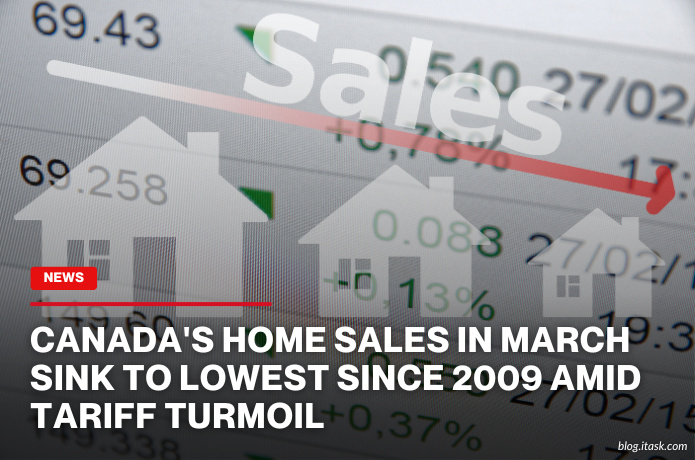Canada's home sales in March sink to lowest since 2009 amid tariff turmoil
Canada's home sales in March sink to lowest since 2009 amid tariff turmoil

Canadian home sales fell sharply in March 2025, reaching their lowest level for the month since 2009, according to the Canadian Real Estate Association (CREA). Sales dropped 4.8% from February and were 9.3% lower than in March 2024. This decline is largely attributed to economic uncertainty stemming from U.S. tariffs and a broader slowdown in the housing market.
The national average home price decreased by 3.7% year-over-year to $678,331. CREA's Home Price Index also fell by 1% from February to March, marking the largest monthly drop since November 2023. The most significant declines were observed in Ontario and British Columbia, particularly in the Greater Toronto Area and the Greater Golden Horseshoe region.
CREA's Senior Economist, Shaun Cathcart, noted that the housing market has shifted from expectations of a strong rebound to a state of stagnation. He emphasized that while initial declines were due to tariff uncertainty, the market is now grappling with the actual economic fallout.
In response to the downturn, CREA has revised its 2025 forecast, now projecting 482,673 home sales for the year—a 0.2% decrease from previous estimates. The national average home price is expected to decline by 0.3% to $687,898, approximately $30,000 lower than earlier predictions.
The Bank of Canada has implemented multiple interest rate cuts since June 2024 to stimulate the economy. However, these measures have had limited impact on the housing market, as potential buyers remain cautious amid concerns over job security and economic stability.
Looking ahead, CREA anticipates a modest recovery in 2026, with home sales projected to increase by 2.9% to 496,487 units. Nonetheless, the market's trajectory will largely depend on the resolution of trade tensions and the restoration of consumer confidence.
